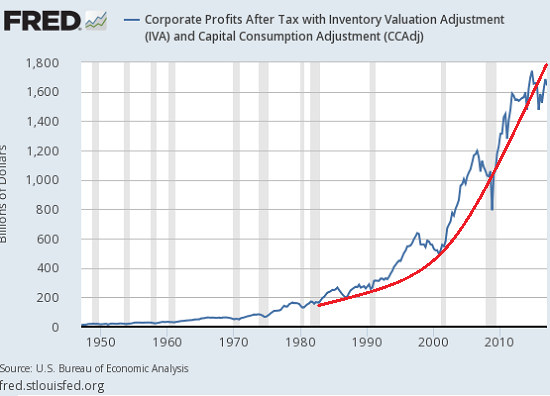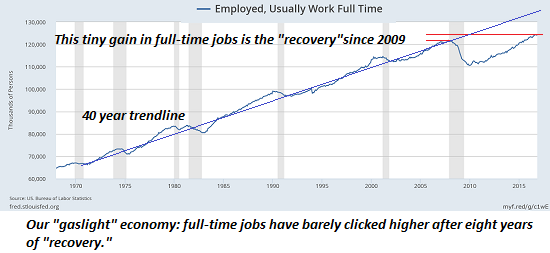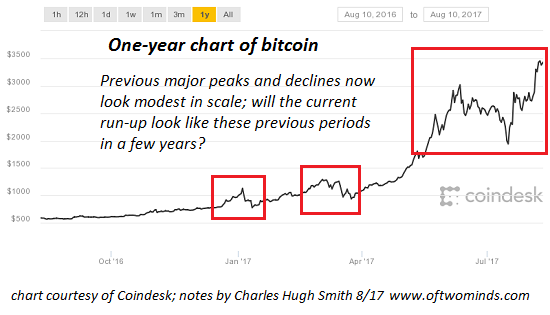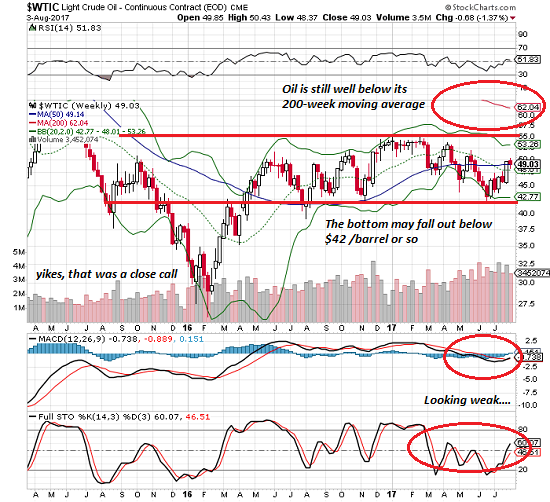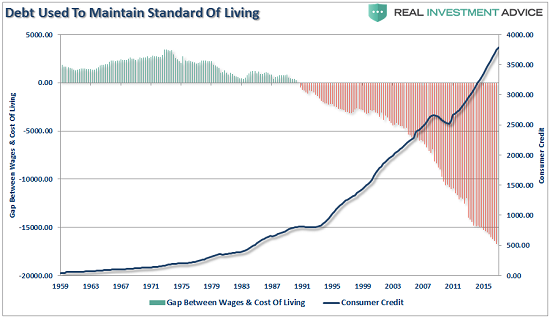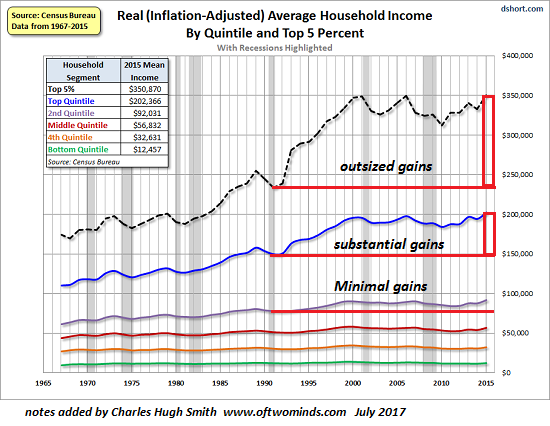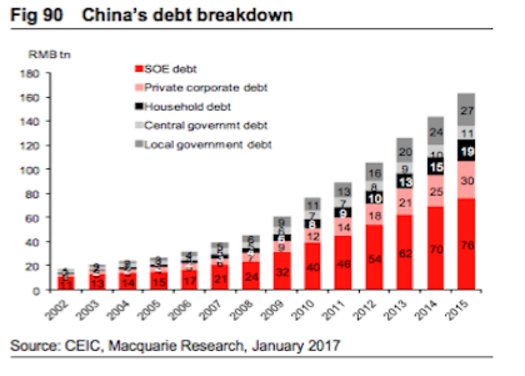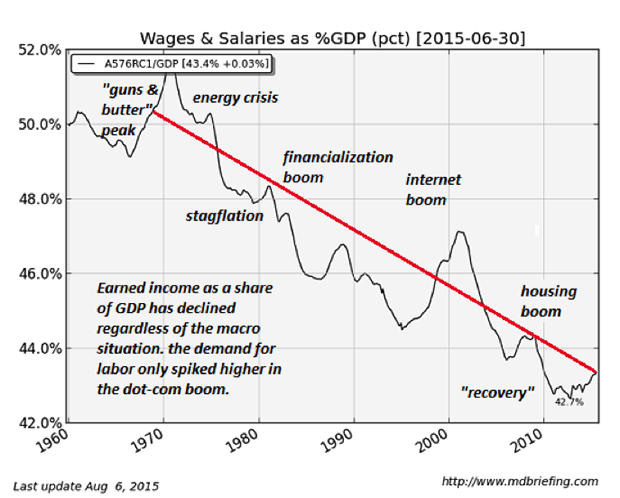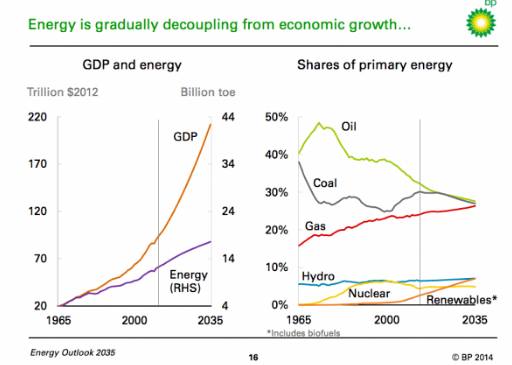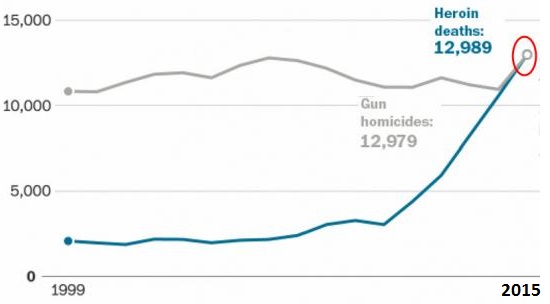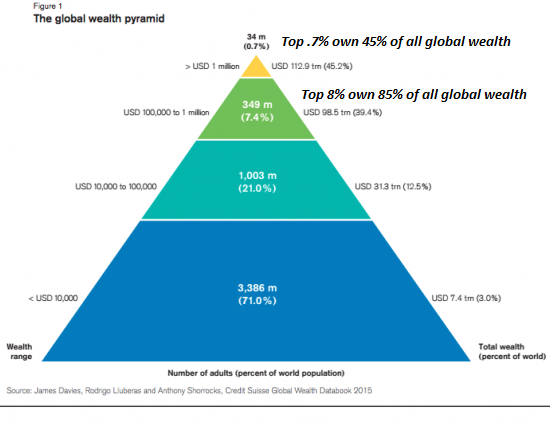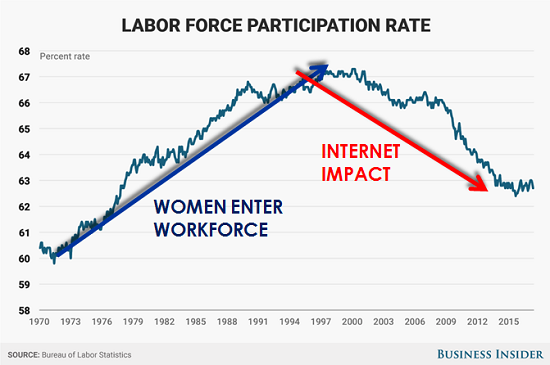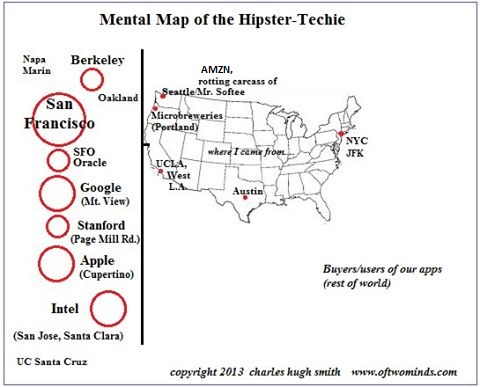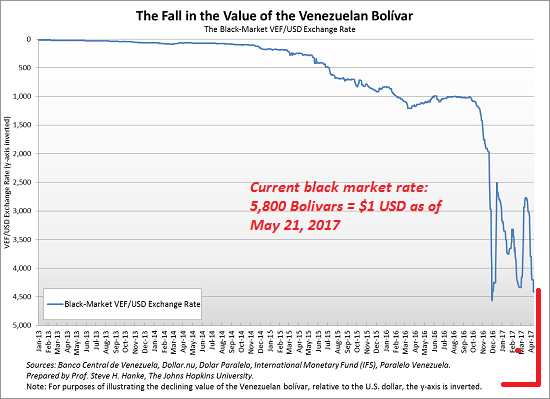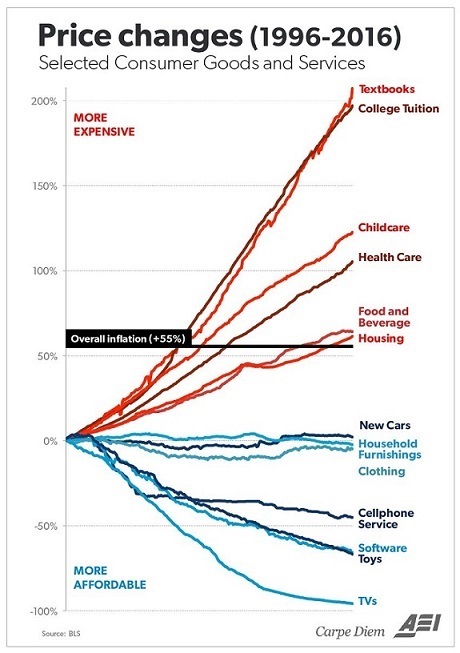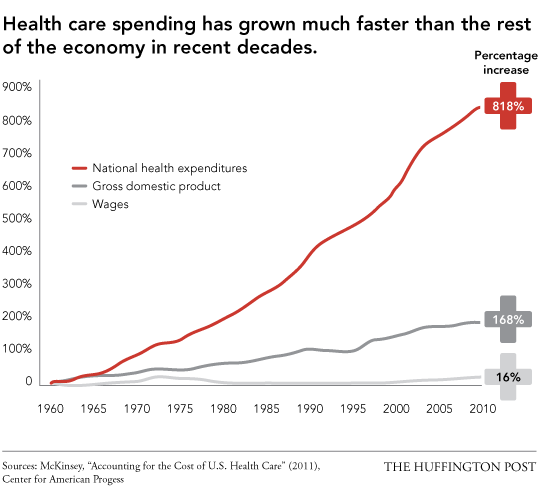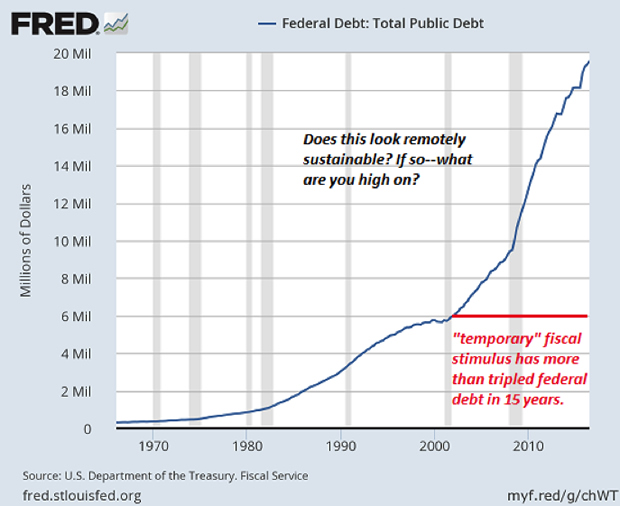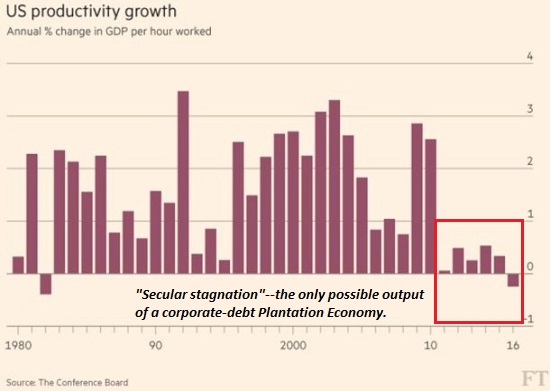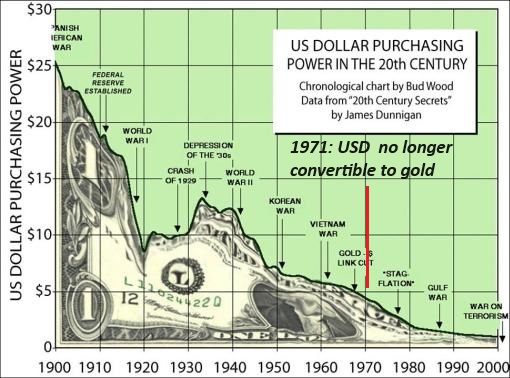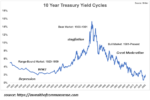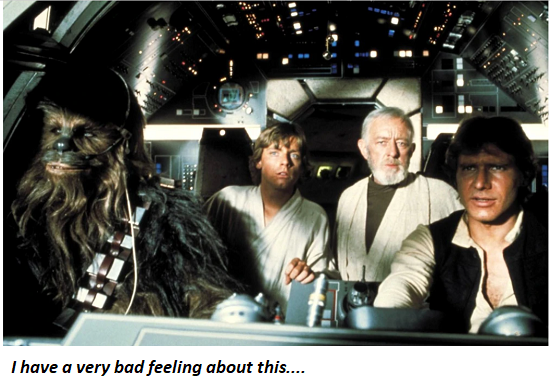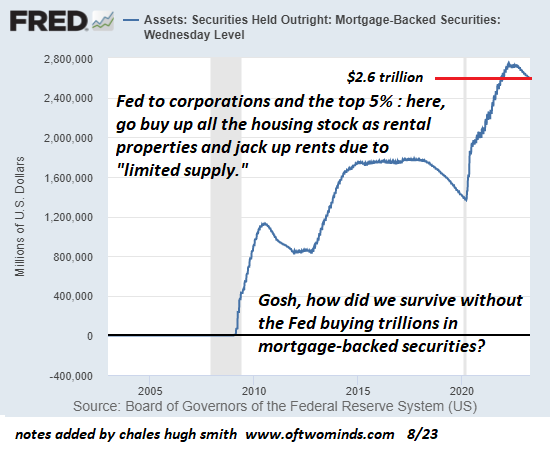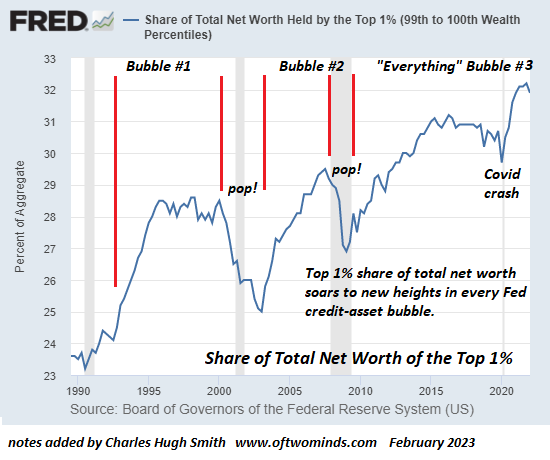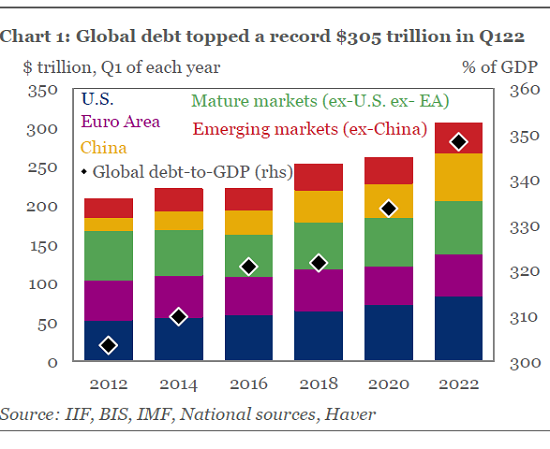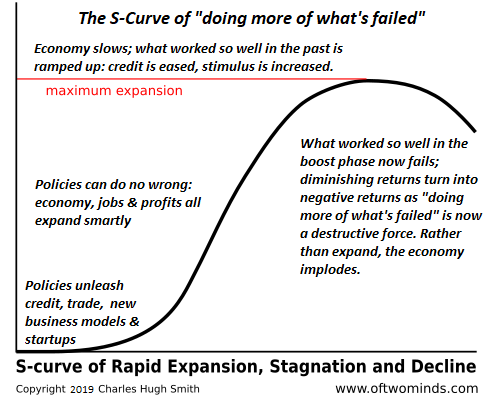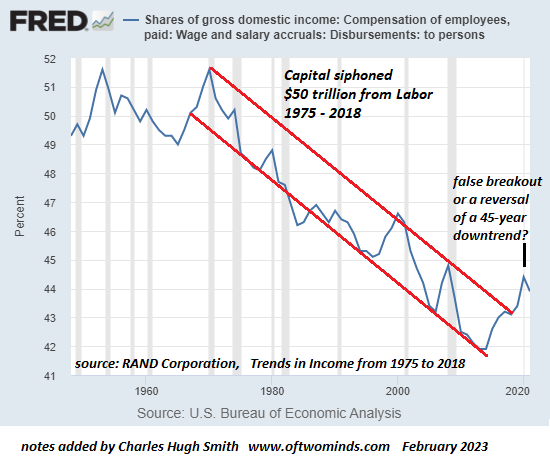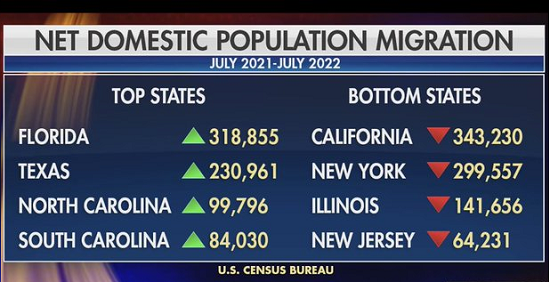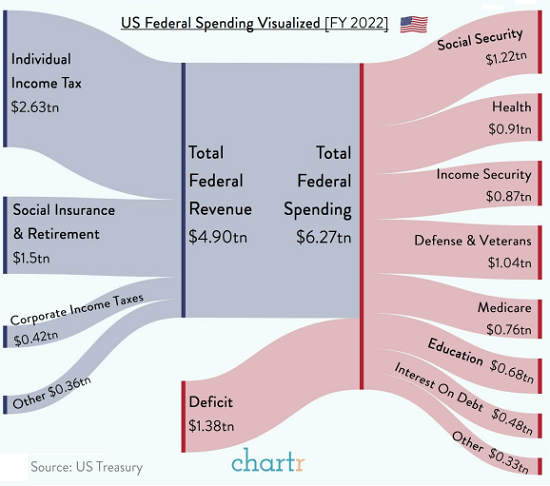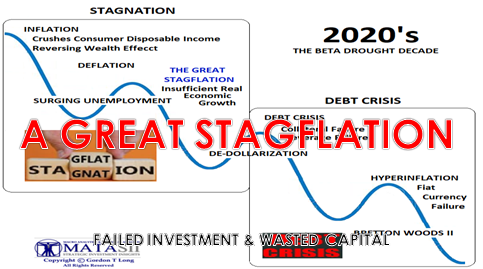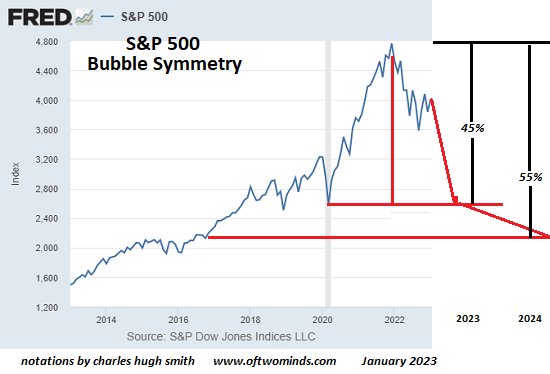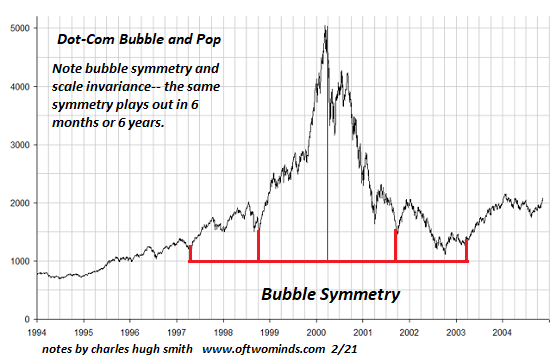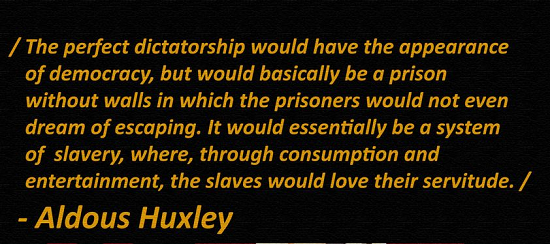Category Archive: 5.) Charles Hugh Smith
We Need a Social Revolution
In the conventional view, there are two kinds of revolutions: political and technological. Political revolutions may be peaceful or violent, and technological revolutions may transform civilizations gradually or rather abruptly—for example, revolutionary advances in the technology of warfare.
Read More »
Read More »
Why We’re Doomed: Our Economy’s Toxic Inequality
Why are we doomed? Those consuming over-amped "news" feeds may be tempted to answer the culture wars, nuclear war with North Korea or the Trump Presidency. The one guaranteed source of doom is our broken financial system, which is visible in this chart of income inequality from the New York Times: Our Broken Economy, in One Simple Chart.
Read More »
Read More »
Are We Already in Recession?
How shocked would you be if it was announced that the U.S. had just entered a recession, that is, a period in which gross domestic product (GDP) declines (when adjusted for inflation) for two or more quarters? Would you really be surprised to discover that the eight-year long "recovery," the weakest on record, had finally rolled over into recession?
Read More »
Read More »
What the Mainstream Doesn’t Get about Bitcoin
The real demand for bitcoin will not be known until a global financial crisis guts confidence in central banks and politicized capital controls. I've been writing about cryptocurrencies and bitcoin for many years. For example: Could Bitcoin Become a Global Reserve Currency? (November 7, 2013) I am an interested observer, not an expert. As an observer, it seems to me that the mainstream--media, financial punditry, etc.--as a generality don't really...
Read More »
Read More »
Is Another Oil Head-Fake Brewing?
Over the past decade I've addressed what I call Head-Fakes in the cost of oil/fossil fuel: even though we know the cost of extracting and processing oil will rise over time as the easy-to-get oil is depleted, oil occasionally plummets to such low prices that we're fooled into thinking it will remain cheap for a long time to come.
Read More »
Read More »
Why We’re So Risk-Averse: “We Can’t Take That Chance”
If our faith in the future and our resilience is near-zero, then we can't take any chances. You've probably noticed how risk-averse Hollywood has become: the big summer movies are all extensions of existing franchises--mixing up the superheroes in new combinations, or remaking hit films from the past--all safe bets.
Read More »
Read More »
The Two Charts That Dictate the Future of the Economy
The stock market, bond yields and statistical measures of the economy can be gamed, manipulated and massaged by authorities, but the real economy cannot. This is espcially true for the core drivers of the economy, real (adjusted for inflation) household income and real disposable household income, i.e. the real income remaining after debt service (interest and principal), rent, healthcare co-payments and insurance and other essential living expenses.
Read More »
Read More »
There Is Only One Empire: Finance
There's an entire sub-industry in journalism devoted to the idea that China is poised to replace the U.S. as the "global empire" / hegemon. This notion of global empire being something like a baton that gets passed from nation-state to nation-state is seriously misleading, in my view, for this reason:
Read More »
Read More »
The Inevitability Of DeGrowth
Debt-dependent consumption in a world in which wages stagnate for the bottom 90% and energy costs increase as demand outstrips supply is a system with only one possible end-point: collapse. Even though we don't know precisely how the future will unfold, we know a few things: Of the 7.5 billion humans on the planet, virtually every individual wants to enjoy a high-energy consumption “middle-class” lifestyle.
Read More »
Read More »
We Need a New American (Social) Revolution
The solution is a new decentralized way of living that bypasses the chokepoints of centralized political and financial power. I'm going to tell a story here using charts--a story that leads to one conclusion: we need a New American Social Revolution.
Read More »
Read More »
The Real Cause of the Opioid Epidemic: Scarcity of Jobs and Positive Social Roles
The employment rate for males ages 25-54 has been stairstepping down for 30 years, but it literally fell off a cliff in 2009. We all know there is a scourge of addiction and premature death plaguing the nation, a scourge that is killing thousands and ruining millions of lives: the deaths resulting from the opioid epidemic (largely the result of "legal" synthetic narcotics) are mounting at an alarming rate: We also know that the proximate cause of...
Read More »
Read More »
If We Don’t Change the Way Money Is Created, Rising Inequality and Social Disorder Are Inevitable
Centrally issued money optimizes inequality, monopoly, cronyism, stagnation and systemic instability. Everyone who wants to reduce wealth and income inequality with more regulations and taxes is missing the key dynamic: central banks' monopoly on creating and issuing money widens wealth inequality, as those with access to newly issued money can always outbid the rest of us to buy the engines of wealth creation.
Read More »
Read More »
Automation’s Destruction of Jobs: You Ain’t Seen Nothing Yet
Automation--networked robotics, software and processes--has already had a major impact on jobs. As this chart from my colleague Gordon T. Long illustrates, the rise of Internet technologies is reflected in the steady, long-term decline of the labor force participation rate-- the percentage of the populace that is actively in the labor market.
Read More »
Read More »
Can We See a Bubble If We’re Inside the Bubble?
If you visit San Francisco, you will find it difficult to walk more than a few blocks in central S.F. without encountering a major construction project. It seems that every decrepit low-rise building in the city has been razed and is being replaced with a gleaming new residential tower.
Read More »
Read More »
The Path to Inflation: “Helicopter Money”
Yet conventional economists are virtually unanimous that deflation is the danger and inflation is a "good thing" we need to spur so servicing existing debt becomes easier for debtors. Due to the deflationary pressures of technology and stagnant wages for the bottom 90%, the consensus sees low inflation as far as the eye can see.
Read More »
Read More »
How Debt-Asset Bubbles Implode: The Supernova Model of Financial Collapse
Gravity eventually overpowers financial fakery. When debt-asset bubbles expand at rates far above the expansion of earnings and real-world productive wealth, their collapse is inevitable. The Supernova model of financial collapse is one way to understand this. As I noted yesterday in Will the Crazy Global Debt Bubble Ever End?, I've used the Supernova analogy for years, but didn't properly explain why it illuminates the dynamics of financial...
Read More »
Read More »
Will the Crazy Global Debt Bubble Ever End?
We've been playing two games to mask insolvency: one is to pay the costs of rampant debt today by borrowing even more from future earnings, and the second is to create wealth out of thin air via asset bubbles. The two games are connected: asset bubbles require leverage and credit.
Read More »
Read More »
Inflation Isn’t Evenly Distributed: The Protected Are Fine, the Unprotected Are Impoverished Debt-Serfs
The Consumer Price Index (CPI) measure of inflation is bogus on a number of fronts, a reality I've covered a number of times: though the heavily gamed official CPI is under 2% for the past four years, the real rate is 7% to 12%, depending on whether you happen to live in locales with soaring rents/housing and healthcare costs.
Read More »
Read More »
The Keynesian Cult Has Failed: “Emergency” Stimulus Is Now Permanent
Can we finally admit that eight years of following the Keynesian coloring-book have not just failed, but failed spectacularly? What do we call a status quo in which & emergency measures" have become permanent props? A failure. The "emergency" responses to the Global Financial Meltdown of 2008-09 are, eight years on, permanent fixtures.
Read More »
Read More »
State of Denial: The Economy No Longer Works As It Did in the Past
If there is one reality that is denied or obscured by the Status Quo, it is that the economy no longer works as it did in the past. This is the fundamental economic context of our current slide into political-social disintegration.
Read More »
Read More »









